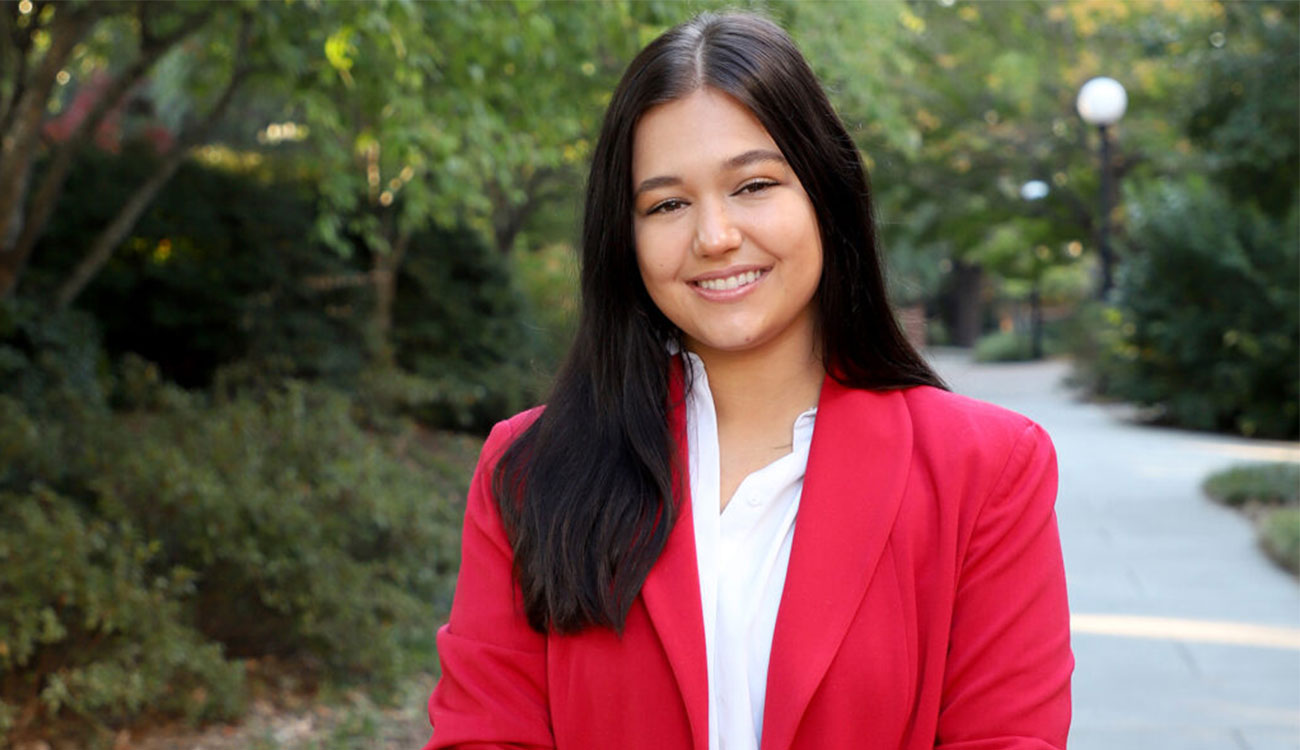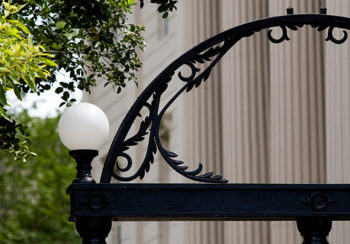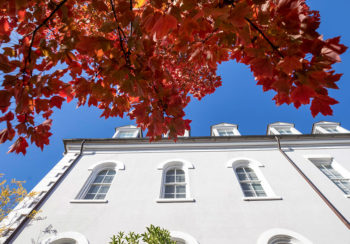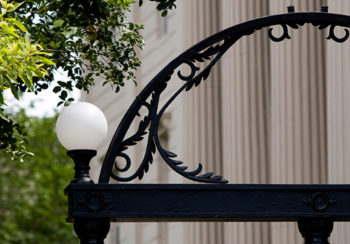University of Georgia undergraduate student Mariah Cady didn’t earn her Rhodes Scholarship selection for just one thing. Her academic background includes diverse fields of study like international affairs and Russian language, which she applied on a yearlong scholarship for critical language studies in Almaty, Kazakhstan. There, she worked on refugee and forced migration studies, among other things.
Her time at UGA has helped her fortify relationships, and her conversations with mentors and peers have sparked further curiosity into enhancing refugee resettlement policies.
But one conversation had, perhaps, the biggest impact.
She was speaking with Maryann Gallagher, a senior lecturer in UGA’s School of Public and International Affairs. Gallagher, director of the Richard B. Russell Security Leadership Program, studies American foreign policy and gender in international relationships. She helped Cady hone this kernel of an interest into a fully-fledged research project with the Center for Undergraduate Research Opportunities (CURO) that influenced the trajectory of her academic career.
“The topic of media coverage of refugees interested me,” said Cady, a Morehead Honors College student and Foundation Fellow who graduated earlier this month with a degree in Russian and international affairs. “I read the news every day, and I felt that the way people perceived refugees, or any group in general, was based heavily on input from specific word choices made in media. I talked to [Gallagher] about that interest, and she helped me funnel it into a semester-long research project.”
Cady received funding from CURO and started working with Gallagher on press coverage of the Syrian refugee crisis in the United Kingdom and Germany. She transitioned that into research on far-right politics in Europe regarding refugees and border pushback in southern Europe in further CURO research with Distinguished Research Professor Cas Mudde.
Cady persistently delved deeper into the field, embarking on new projects and posing insightful questions to inform research that could advance the study of refugee challenges. Supplementing her studies, she is actively helping refugee clients as an intern in the Refugee Bureau of the Kazakh International Bureau for Human Rights and the Rule of Law.
“My question as I was reading about the extent of our propensity to international conflict was, based on the refugee cap in the United States, what percentage of refugees were caused to flee their homes due to our military action, whether I consider it morally right or not?” she said. “What percentage of them are being resettled in the United States? How are those victims of conflict treated by the United States in return?”
It’s just one part of a full schedule that, in addition to her research and major degrees, includes minors in German, geography, and teaching English for her undergraduate studies. Now, Cady will continue her education at the University of Oxford, pursuing master’s degrees in linguistics, philology, and phonetics and another in refugee and forced migration studies.
The Rhodes Scholarship, renowned for its global reach and academic excellence, announced Cady as one of only 32 students nationwide to receive this honor in the fall. At Oxford, she will join peers from 64 countries, enriching her academic journey with diverse perspectives and experiences.
As a Morehead Honors College student, Foundation Fellow, and member of the Russian Flagship program in the Mary Frances Early College of Education, Cady thrived in an environment that fostered learning from her peers and cultivated a strong support network. In searching for a graduate program offering exposure to specialists across diverse academic realms, Cady actively sought opportunities aligned with her ambitious goals. Being awarded the Rhodes Scholarship meant she would gain access to many invaluable opportunities.
“It’s like the cohort the Foundation Fellowship gave me at UGA, but on a greater scale with over 100 students from diverse academic backgrounds and countries,” Cady said. “I’ll learn a lot from them by being able to communicate with them and discuss political topics. That’s what I’m excited about.”
At UGA, Cady immersed herself in various campus groups, each contributing uniquely to her academic and personal growth. Among these, she thrived in the dynamic environment of the Russian Flagship Program, assumed leadership as president of the Native American Students Association (NASA), and also lent her efforts to Paper Airplanes, a student organization that provides tutoring support to refugees.
“I didn’t come into UGA knowing this is where I wanted to go with my life,” Cady said. “I honestly just explored everything. I knew that I wanted to go into some sort of political field or international studies. Through exploring, I found the fields closest to my heart, and then they meshed well for the career I want.”
Drawing from her extensive research endeavors, Cady is driven by a profound determination to gain deeper insights into the intricate dynamics between refugee politics and community, working to question those moments when empathy and human connection are erased from the equation. Cady emphasizes that her experience at UGA was transformative, providing a fresh lens to approach and address the political challenges with refugee issues.
“I’m currently reading ‘All About Love’ by bell hooks, which talks about how we’re losing our ability to care about one another on a political level, even if concern, on a social level, is still considered helpful, permissible,” Cady said. “Warmth and community allow us to support each other, as I did with NASA and in Paper Airplanes. I want to continue to encourage that, even in a workspace and political spaces later.”






